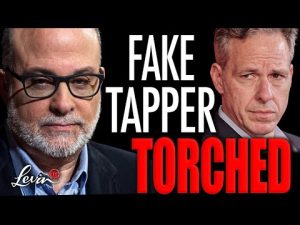In recent political drama, a notable discussion has erupted around the implications of presidential pardons, specifically in relation to Hunter Biden, the son of President Joe Biden. Pardon powers are a well-established part of the U.S. Constitution, allowing presidents to forgive those convicted of crimes. However, the use of this power often leads to debates filled with intrigue, legal ramifications, and even a bit of family tension. The situation surrounding Hunter Biden and his recent pardon has set off a whirlwind of speculation about its potential consequences.
When President Biden pardoned Hunter, many raised eyebrows. It isn’t the first time we’ve seen a president exercise this powerful tool. The most famous example was when President Ford pardoned Richard Nixon for any crimes he might have committed during his presidency. This kind of pardon is broad and sweeping, allowing individuals to escape the legal consequences of their actions—known or unknown. In essence, such pardons can create a complex legal landscape.
One of the significant concerns arising from Hunter Biden’s pardon is how it might inadvertently backfire on his father. If Hunter has been pardoned for all potential crimes, he loses his Fifth Amendment right against self-incrimination when asked about his actions or his father’s involvement. In simpler terms, if Congress decides to question Hunter, he might have to spill the beans, which could lead to uncomfortable revelations—and possibly even legal troubles for Joe Biden himself. It’s a fascinating twist in the long saga of political drama.
Furthermore, the idea of using this pardon as a shield for other investigations makes the situation all the more intriguing. If Hunter Biden were to stonewall Congress or fail to answer their questions, he could find himself in contempt of Congress. This situation creates a rather tricky bind for both the Biden family and the lawmakers who seek accountability. The image of a president dealing with a family member’s legal issues is not new, but it is certainly complicated when a presidential pardon is involved.
Adding to the complexity, there’s chatter about legislations in Congress that would require any pardon linked to ongoing investigations to be disclosed. Such transparency measures aim to prevent any potential abuse of power, ensuring presidents can’t use pardons to sweep their legal troubles under the rug—or those of their family. The stakes are high, and as history has shown, the vacuum of power can result in turbulent political waters.
As the events unfold, one can’t help but find a bit of humor in the portrayal of family dramas at the highest levels of government. It’s as if politics has turned into a high-stakes game of Monopoly, where one wrong move can send players spiraling back to Start. In the end, this saga serves as a reminder that even the most powerful individuals must tread carefully, for the consequences of past actions often come back to haunt them—especially when family ties are involved. Politics is not just about policies; sometimes, it’s about dodging tricky questions, navigating family dynamics, and trying to stay one step ahead in a constantly shifting landscape. And as always, the American public watches closely, popcorn in hand, eager to see how this political theater unfolds.







